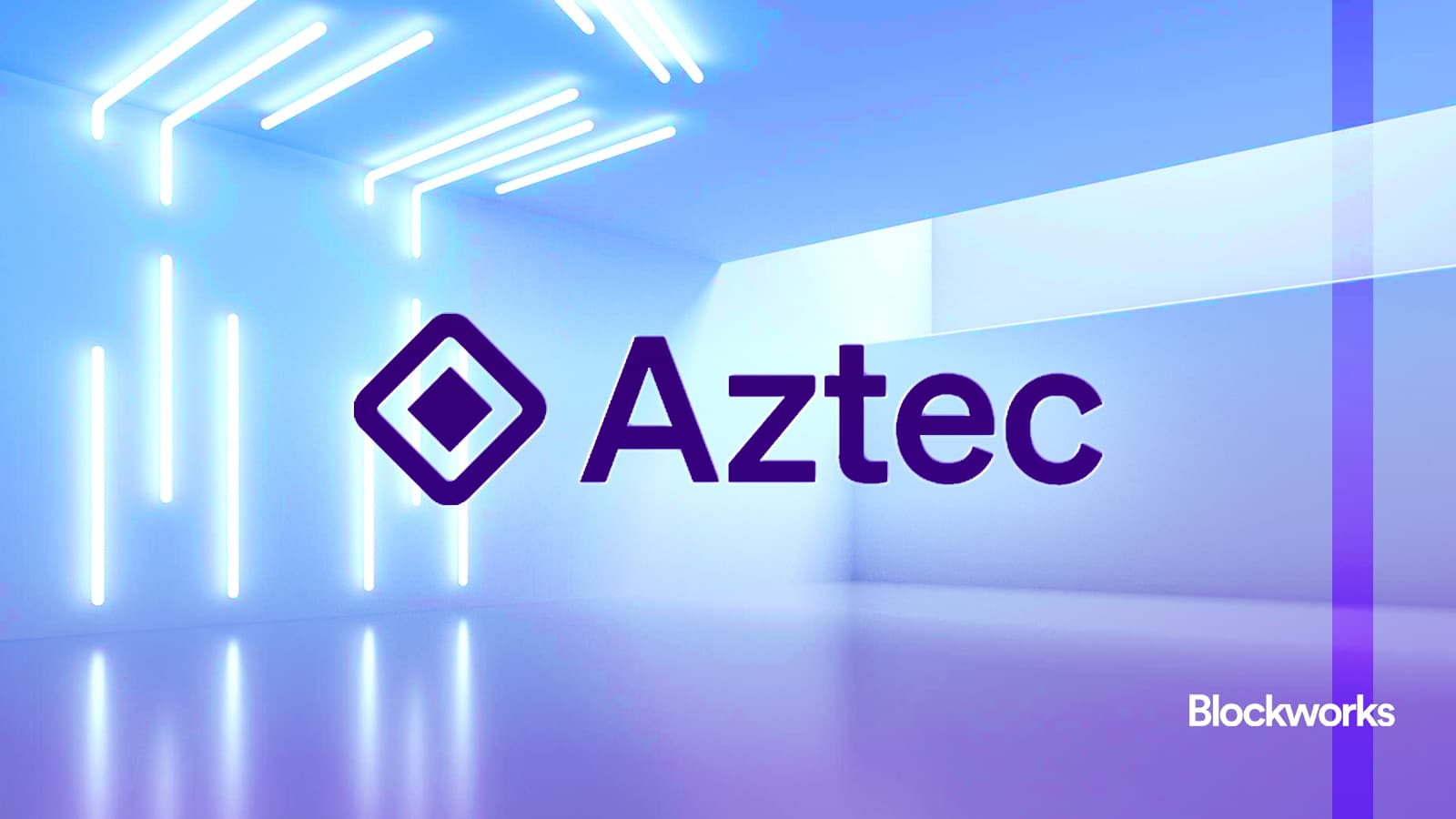Aztec’s ZK Rollup Testnet Goes Live—Can It Outpace Ethereum’s Gas Guzzlers?

Privacy-focused Aztec Network fires the starting pistol on its ZK-Rollup testnet—just as institutional traders start eyeing crypto’s back alleys for tax-efficient exits.
Why it matters: Zero-knowledge proofs meet DeFi’s leaky data problem. If successful, Aztec could let users transact without broadcasting every detail to the world—or to the IRS’s blockchain surveillance team.
The catch? Even the slickest privacy tech won’t save you when Wall Street’s quant bots inevitably front-run your ’anonymous’ trades.
Aztec’s differentiation
Unlike most L2s (one exception is Arbitrum’s WASM), Aztec makes some significant modifications to the chain’s execution layer.
Public transactions on Aztec are executed through its custom Aztec Virtual Machine (AVM). Private transactions, however, are offloaded to a client-side environment known as the Private eXecution Environment. PXE is used to generate proofs and run smart contract logic privately.
Transaction proofs are then aggregated into single proofs for Ethereum settlement.
Client-side generation of zk proofs is typically expensive. Yet, Aztec’s new L2 keeps costs down. That’s largely thanks to its PLONK proving system, which makes it “simpler to generate client-side proofs on expensive hardware,” according to the company’s blog. PLONK was co-invented by Aztec co-founder and CEO Zachary Williamson himself.
“Our client-side Prover incorporates the latest in PLONK research with the Protogalaxy folding scheme and a unique technique we call Goblin Plonk to accelerate recursion. We also built our own programming language, Noir, from scratch to compile programs directly into zero-knowledge circuits, which allows us to bypass the overheads seen with zero-knowledge virtual machines,” Williamson told Blockworks.
Contrary to popular belief, most zk rollups do not actually leverage zero-knowledge tech for the purposes of privacy encryption, making it somewhat of a misnomer. Zk rollups today use the tech primarily for the size compression of transactions — for scaling throughput — without encrypting user data.
Aztec applies zk proofs not just for verification, but also to enable end-to-end encryption of transaction metadata. Privacy is optional, however, tying into Aztec’s goals of developing a chain that has flexible privacy and selective disclosure.
That architecture is not possible on the Ethereum L1 today, where all details would be publicly exposed. Neither is it possible on other L1 chains like Monero or Zcash, which allow for private payments but lack smart contract programmability.
“We currently view blockchain privacy as all or nothing, but it doesn’t have to be,” Williamson said.
Aztec’s testnet already has over 100 sequencers in its Devnet and Provernet networks, paving the way for decentralization starting from day one.
- Blockworks Daily: Unpacking crypto and the markets.
- Empire: Crypto news and analysis to start your day.
- Forward Guidance: The intersection of crypto, macro and policy.
- 0xResearch: Alpha directly in your inbox.
- Lightspeed: All things Solana.
- The Drop: Apps, games, memes and more.
- Supply Shock: Bitcoin, bitcoin, bitcoin.

